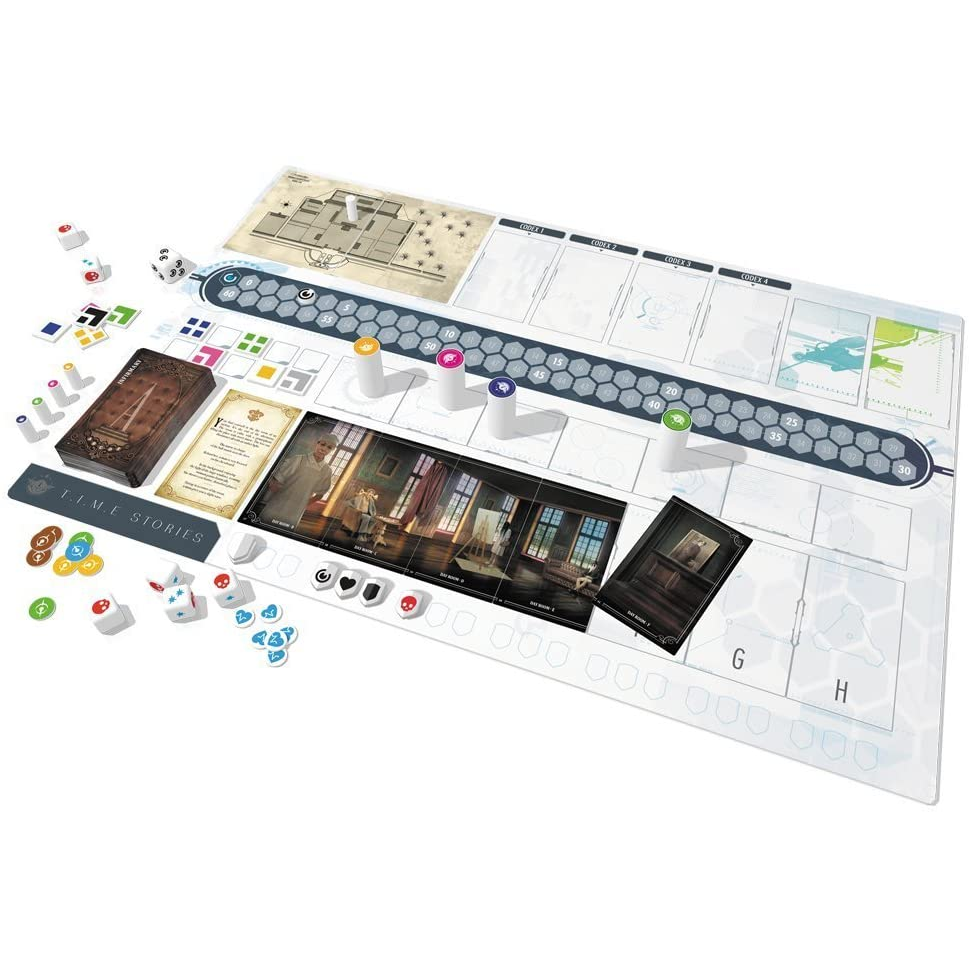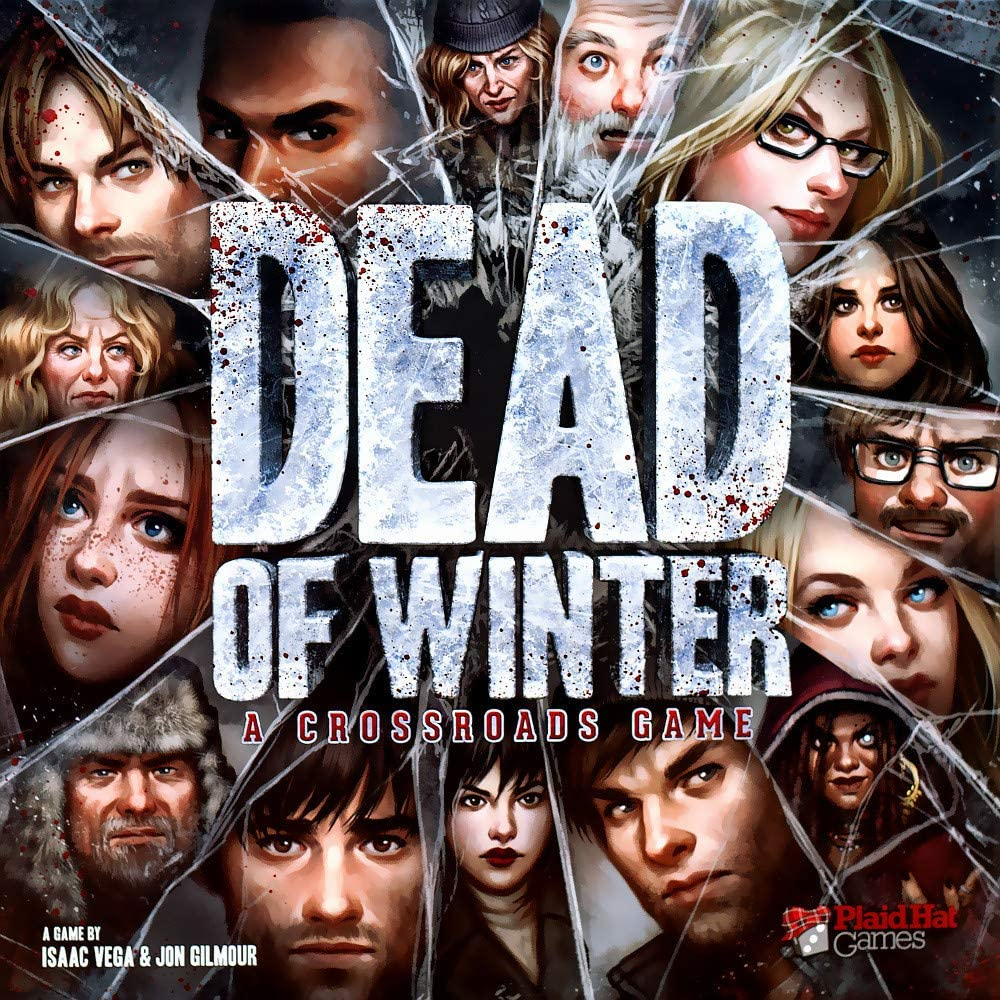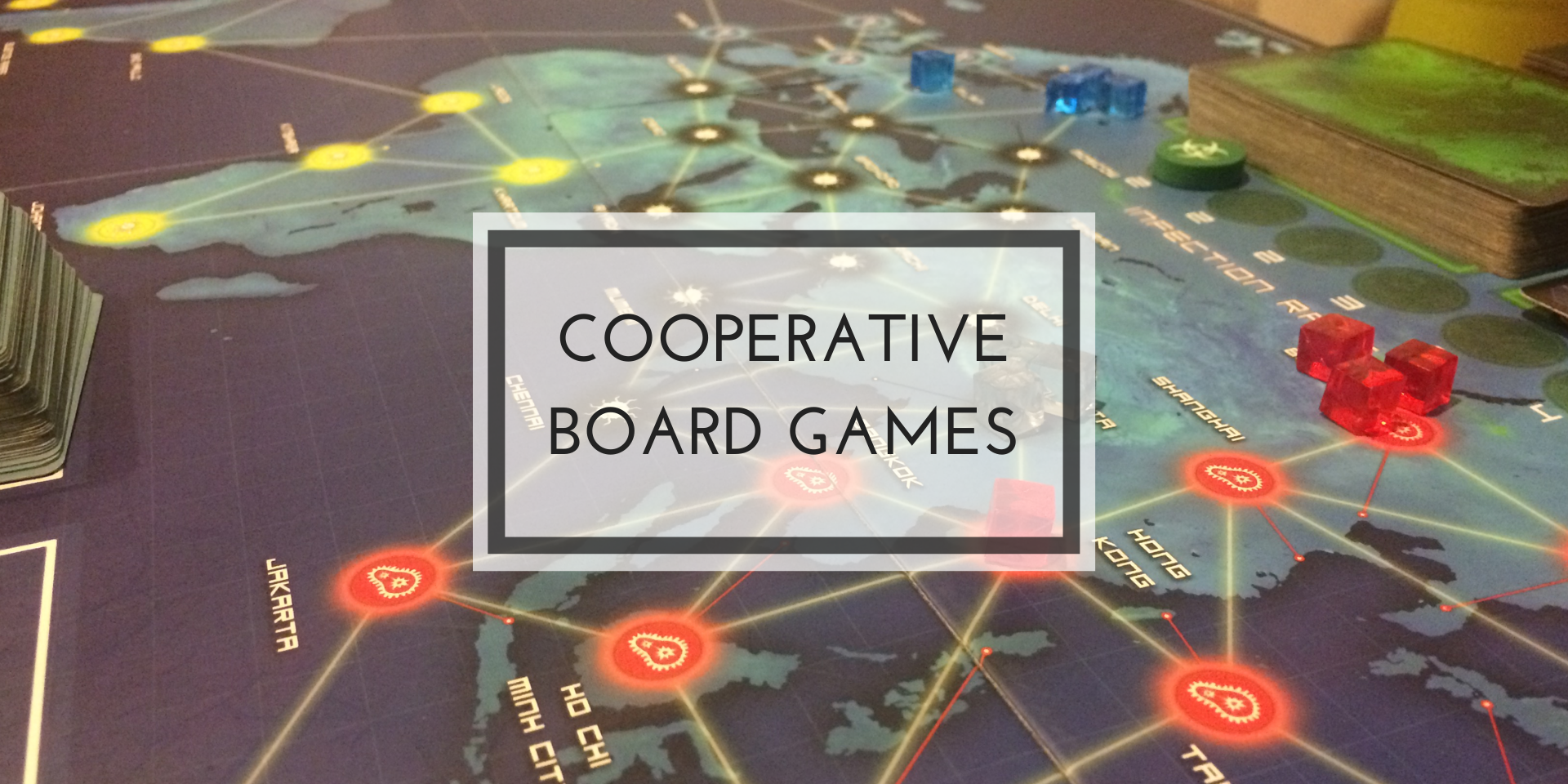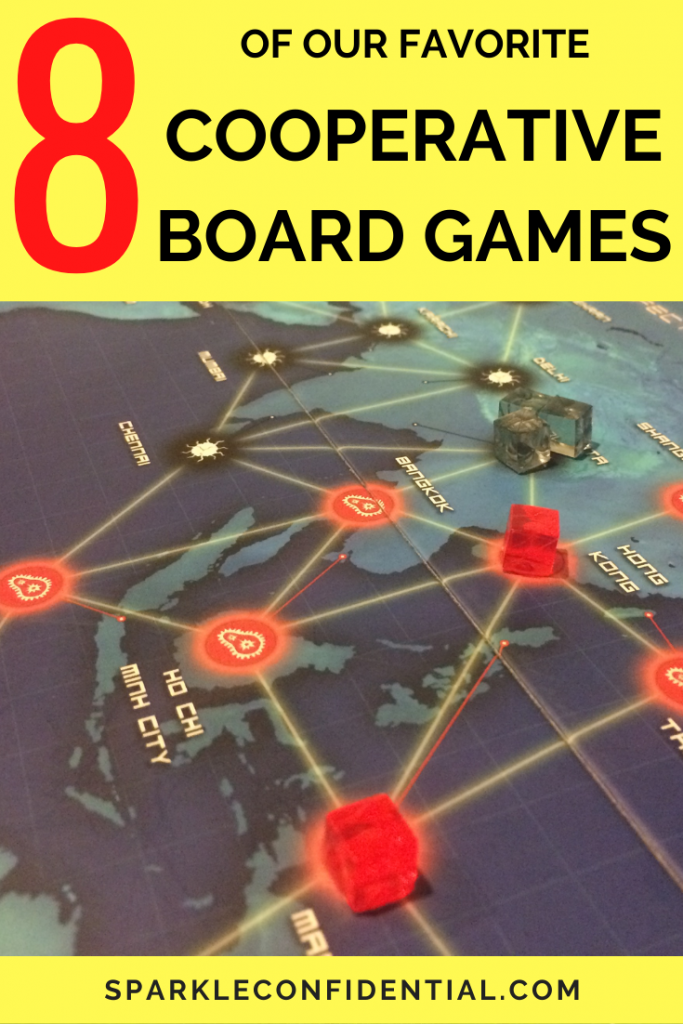This post may contain affiliate links, which means I may receive a commission if you click a link and purchase something that I have recommended. Clicking these links won't cost you any extra money. Please check out my disclosure policy for more details. Thank you for your support!
For the last few years, we have been trying to watch less television. I thought it would be difficult, especially during the winter months, but it was surprisingly easy. As soon as we started to replace our viewing time with other activities such as board games, puzzles, jigsaws and audiobooks, the television became instantly less appealing and we hardly watch it at all now!
As a family, we have always enjoyed board games, but it was 4 years ago when we tried our first cooperative board game. ‘Cooperative’ simply refers to a game in which all players work together towards a common goal, so you all win (or lose) together. This ethic suits our family really well as we sometimes struggle not to help each other out!
The cooperative aspect really promotes communication too as it is obviously necessary to discuss how to best coordinate your efforts. On that note, we always make sure each player has a chance to express their opinion, to avoid one or two more assertive players dominating the game. It’s only respectful after all and, played in this way, these games can really boost the confidence of quieter players.
I’m really pleased that we discovered cooperative board games and today I’d like to share with you (in no particular order because their ranking varies with my mood!) our top 8 games in this genre so far:
1. Pandemic
The co-operative board game that we tried first was Pandemic, which came highly recommended by a friend and self-confessed ‘board game geek’.
In Pandemic, the players are on a mission to curtail the spread of four virulent diseases which have broken out all over the world, whilst simultaneously researching cures for each of them.
We cannot recommend Pandemic more! Since our very first game, we have been pretty addicted and even between games we will often discuss the strategies that we want to try when we next play.
2. Flash Point
The next cooperative board game that we added to our collection was Flash Point, in which players take on the roles of a team of firefighters trying to control the spread of a building fire and rescue the victims before the building collapses.
Flash Point is very accessible for all levels and even includes two sets of rules, allowing both a basic and an expert version of the game to be played, the latter of which allows variations on game difficulty from novice to heroic. The game also includes a double-sided board with a different building plan on each side, each presenting different challenges to keep the game fresh and exciting.
3. Robinson Crusoe
The theme of Robinson Crusoe must be the best you could ever imagine and you really do feel as though you are shipwreck survivors trapped on a island, totally immersed in the adventure.
However, I will warn you that this game is extremely challenging! We have only ever won it once… but somehow that doesn’t matter. Win or lose, it is an awesome game in every way and when (or if) you finally do win – wow, will you feel like you’ve conquered the world?!
4. Arkham Horror: The Card Game
This is a ‘Living Card Game’ set amid a backdrop of Lovecraftian monsters and madness, and you are investigators working to unravel arcane mysteries and conspiracies.
Arkham Horror: The Card Game can be played as a series of standalone adventures, but the game’s adventures are designed as parts of larger campaigns. Each of the adventures will carry you deeper into mystery, bringing up as many questions as answers, and the choices that you make in one adventure will have consequences later on in your campaign.
It really is a fantastic game, quite unlike anything I had played before, and I defy you not to get hooked! (With so many expansion packs available, it can be a pricey addiction though…)
5. Commissioned
Commissioned is a biblically themed game in which players work cooperatively in order to spread the growth of the church throughout the world.
The concept is pretty much the reverse of Pandemic, since you are trying to spread the growth of the church as opposed to curtailing the spread of disease.
6. T.I.M.E. Stories

7. This War of Mine

8. Dead of Winter

Dead of Winter is a meta-cooperative psychological survival game. This means players are working together toward one common victory condition – but for each individual player to achieve victory, he must also complete his personal secret objective. This secret objective could relate to a psychological tick that’s fairly harmless to most others in the colony, a dangerous obsession that could put the main objective at risk, a desire for sabotage of the main mission, or (worst of all) vengeance against the colony!
It’s a story-centric game about surviving through a harsh winter in an apocalyptic world. The survivors are all dealing with their own psychological imperatives, but must still find a way to work together to fight off outside threats, resolve crises, find food and supplies and keep the colony’s morale up. Dead of Winter has players making frequent, difficult, heavily- thematic, wildly-varying decisions that often have them deciding between what is best for the colony and what is best for themselves.





